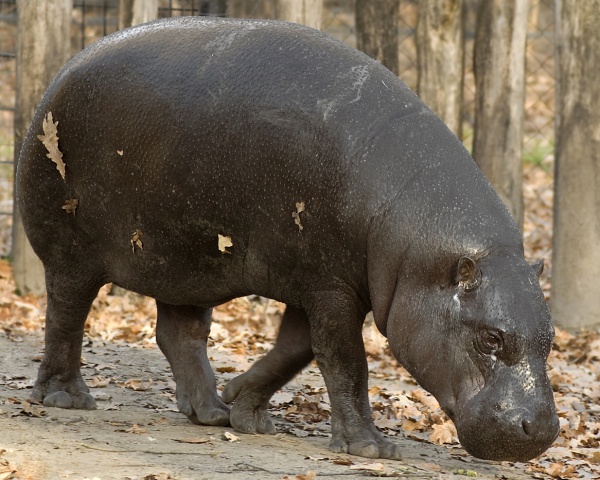Facts About Pygmy hippopotamus
The pygmy hippopotamus is a distinctive and intriguing species indigenous to the forests of West Africa, primarily in Liberia. In contrast to its larger relative, the common hippo, the pygmy hippo is a reclusive and nocturnal animal, preferring to avoid attention. These diminutive hippos are semiaquatic, meaning they rely on water not only to keep their skin hydrated but also to regulate their body temperature. As herbivores, they consume a variety of plant species found in their forest habitat.
Researching these elusive animals in the wild presents significant challenges, so much of what we know is derived from studying pygmy hippos in captivity. Unfortunately, they face numerous threats, including habitat destruction, poaching, hunting, and natural predators.
From a taxonomic standpoint, the pygmy hippo belongs to the family Hippopotamidae and is classified under the genus Choeropsis or Hexaprotodon. It is the sole surviving member of its genus. Interestingly, its evolutionary history is closely linked to that of the common hippo, and scientists have identified several extinct species of pygmy and dwarf hippos in the Mediterranean region.
Regarding appearance, pygmy hippos are significantly smaller than their larger relatives and are well adapted to life on land in dense forests. Their diet comprises ferns, broad-leaved plants, and fruits. They can mate either on land or in water, and females have a gestation period of approximately 190-210 days. Conservation efforts are underway to protect their natural habitats and support captive breeding programs.
Historically, the pygmy hippo remained a mystery to the world outside West Africa until the 19th century. Early explorers even mistook them for wild hogs. It wasn't until the early 20th century that pygmy hippos were successfully introduced to Europe and the United States. Local folklore includes enchanting tales about pygmy hippos, including stories of them shining like diamonds and their unique nursing behaviors.
Today, the survival of pygmy hippos in captivity is more secure than in the wild, thanks to dedicated conservation efforts. However, preserving their natural habitats remains critical for their long-term survival.

 Sierra Leone
Sierra Leone